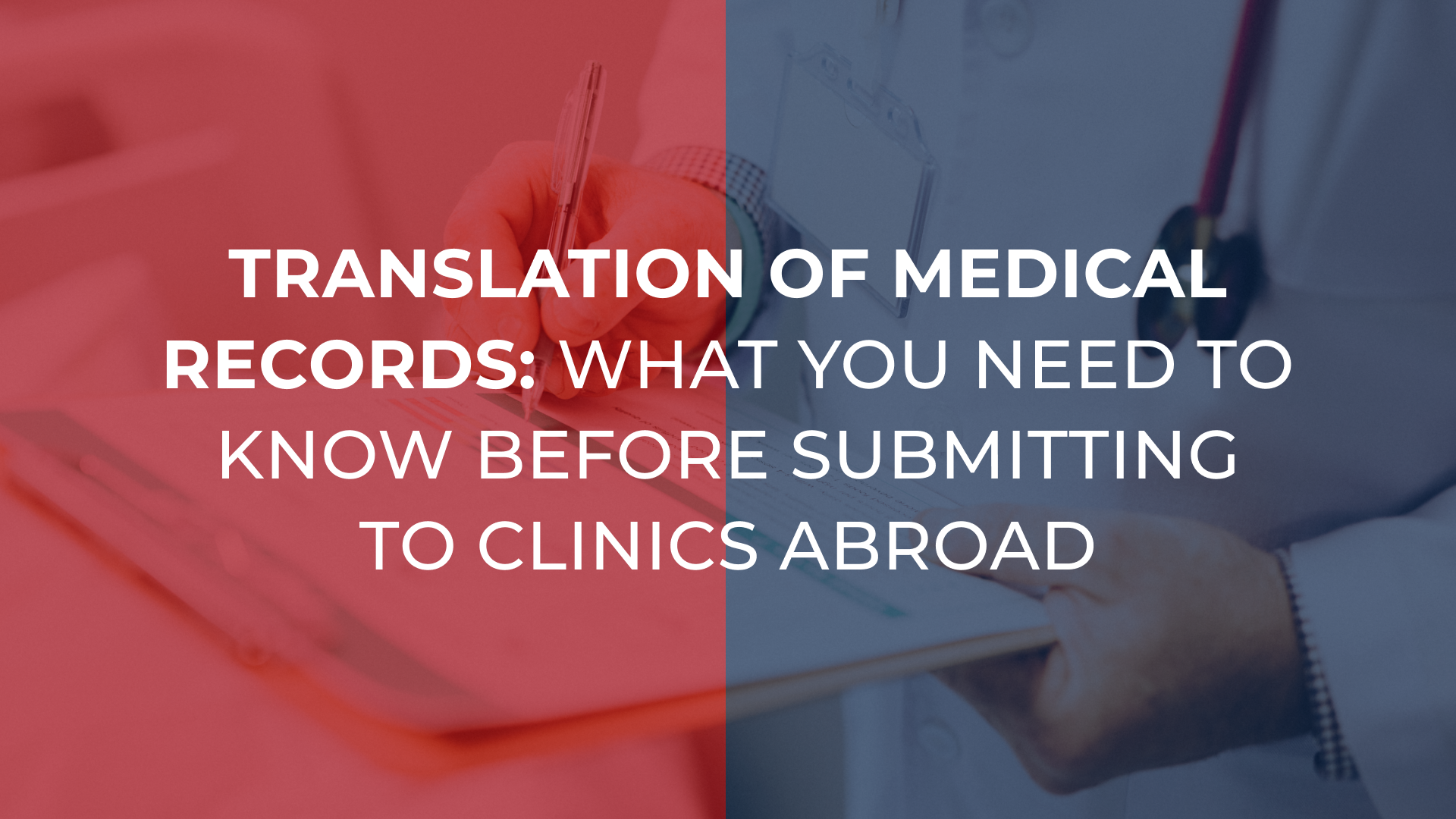
Medical translation for treatment abroad: why accuracy matters
Medical translation is not an ordinary language service, but a critical step on the way to treatment abroad. To get a consultation or undergo treatment in a foreign clinic, a patient must provide a package of medical documents: an extract from the medical history, test results, images, and certificates. All these documents must be translated accurately, taking into account the requirements of the foreign medical system.
It is best to entrust this work to a professional translation agency that specializes in medical topics and guarantees the accuracy of terminology, adaptation of formatting, and compliance with international standards. Often, along with translation, you will also need related services: translation of certificates and applications, apostille for documents, and in some cases, full legalization of documents.
You should also take into account the specifics of processing in different countries. For example, a medical translation into Polish or a medical translation into English may have different requirements for structure, certification, or wording. That's why you should check with the clinic or seek expert advice before submitting.
What does the translation of medical documents include
To translate a medical statement qualitatively means not only conveying the content, but also doing so in compliance with a number of requirements. It is important to understand what translation of medical documents includes:
- Accurate transfer of terms
Each medical term must be translated without distortion. For example, the Latin names of diseases or Latinized abbreviations (e.g., Hb, Rx, ECG) have their equivalents in international medical practice. The translator must be familiar with this terminology in both languages.
- Adapting abbreviations to international standards
Abbreviations in medical documents — commonplace, but each country uses its own notation. A specialist should know how to properly adapt Ukrainian abbreviations to the English or Polish version while maintaining the meaning.
- Preserving the structure of the document
The document should be designed as close to the original as possible: tables, diagrams, section numbering, dates. This is not just a matter of convenience — many clinics require that the translation look like a “mirror” of the original.
- Correct display of units of measurement
Different countries may use different units of measurement — for example, glucose in Ukraine is measured in mmol/L, while in the United States it is measured in mg/dL. The translator must not only convert the unit, but also convert the value correctly, if necessary, taking into account the standards of the clinic.
- Stylistic compliance of the document with the standards of the medical institution
The official style, neutrality, and logical presentation are all critically important. Medical documents should not contain inaccuracies, subjective wording, or unnecessary explanations that are not provided in the original.
If you need to translate a medical certificate, even the simplest documents may contain specialized vocabulary or require notarization. In such cases, you should contact professionals. Admiral Translation Inc. guarantees compliance with the requirements of the clinic and the accuracy of the information transmitted.
Why it is important to contact a medical translator
Medical documents — not fiction or general text, but materials that directly affect the quality of diagnosis and subsequent treatment. They cannot be translated "by ear" or using automatic services. In this process, it is important to involve a professional translator who is not only fluent in the language but also well versed in medical topics, in particular:
- Possesses knowledge of medical terminology, including Latin names, abbreviations, and specialized concepts;
- Has specialized training either in medicine or in specialized technical translations;
- Understands the specifics of documents from different countries — what a foreign doctor expects to see in a statement, how data is usually presented in a particular healthcare system;
- Is able to adapt abbreviations, units of measurement, and wording to the requirements of the receiving party without losing the medical essence.
Accurate translation of medical terms is extremely important. Even a single mistake in dosage, diagnosis, or symptom description can lead to incorrect prescription or refusal of treatment. That's why you shouldn't take any risks by using unprofessional services or translators without relevant experience.
Admiral, a reliable translation agency, always works with specialized translators, checks each document through several stages of quality control and ensures compliance with international standards.
Translation requirements for foreign clinics
When preparing for treatment abroad, it is important not only to translate documents accurately, but also to execute them in accordance with the clinic's requirements. As a rule, medical institutions require:
- Certification of the translation — notarised or stamped by a reputable translation agency. This ensures that the document will be accepted by official institutions.
- Legalisation of documents — in case, if the country is not a member of the Hague Convention. For most European countries, it is enough to affix an apostille for documents.
- The current date of translation — as a rule, documents should be translated no earlier than 3-6 months before submission.
- Data of the translator or agency — the translation must contain the name of the translator, stamp, signature and date.
- Additional translations — often required also translation of certificates and applications related to insurance, referral or travel permits.
To be sure that all documents meet the clinic's requirements, we recommend contacting a professional translation agency, Admiral, which specialises in medical documentation and is familiar with the nuances of international paperwork.
Professional translation is the key to accurate treatment, safe border crossing, and successful interaction with clinics. If you need a translation of medical terms — don't hesitate to contact our specialists. We will help you quickly, accurately and in accordance with all requirements.
